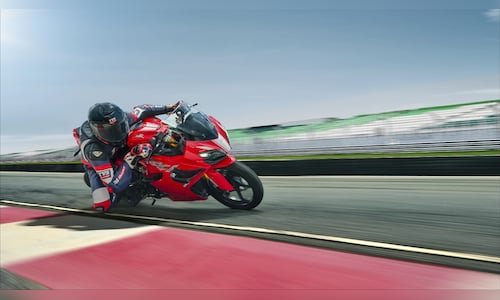Porsche 2026 911 Turbo S goes hybrid, matches Bugatti pace with 2.5s sprint


 1 / 10
1 / 10Hybrid Debut: Porsche has launched the 2026 911 Turbo S, its most powerful production 911 to date. Revealed at the Munich auto show, the car introduces hybrid technology to the Turbo S lineup. It is offered as both a coupé and a cabriolet. The model combines track-ready performance with everyday usability, maintaining practicality with optional rear seats and storage space despite its hypercar-level speed.
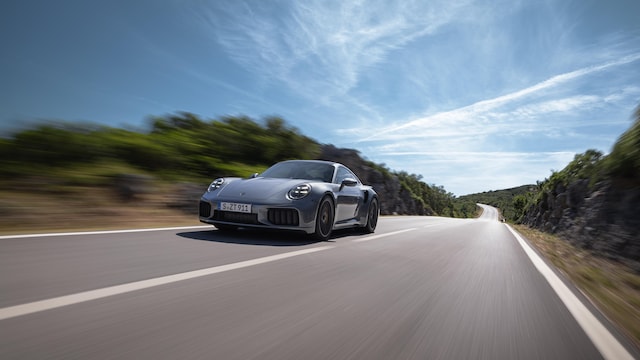
 2 / 10
2 / 10Powertrain Upgrade: The highlight of the new Turbo S is the Twin-Turbo T-Hybrid system. This setup delivers 701 horsepower, making it the strongest 911 ever produced. The hybrid system includes two electric exhaust-gas turbochargers. They enhance throttle response, reduce turbo lag, and provide torque consistently across a wide rev range. The 3.6-litre flat-six engine produces 800 Nm of torque between 2,300 and 6,000 rpm.
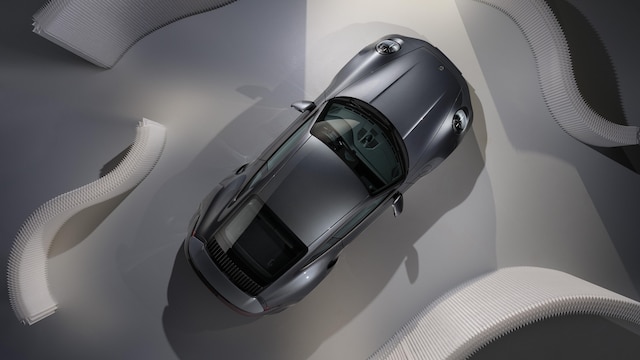
 3 / 10
3 / 10Speed Numbers: Performance is a major focus of the new Turbo S. With Porsche’s eight-speed PDK gearbox and all-wheel drive, the car accelerates from 0 to 100 kmph in 2.5 seconds. It reaches 200 kmph in 8.4 seconds, which is 0.5 seconds quicker than its predecessor. Top speed is recorded at 322 kmph. Engineers note that real-world acceleration could be even quicker.
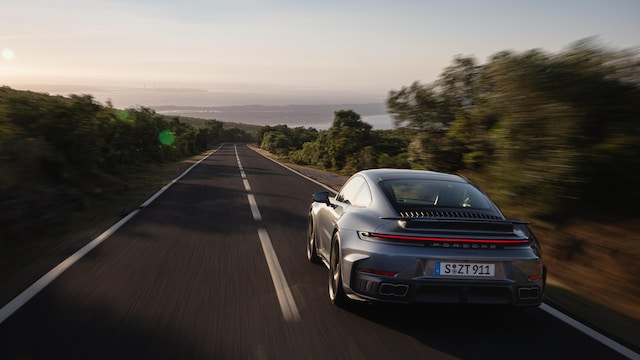
 4 / 10
4 / 10Track Performance: On the Nürburgring, the Turbo S achieved a lap time of 7 minutes 03.9 seconds. This marks an improvement of 14 seconds compared with the earlier model. Porsche says the hybrid technology is focused on performance gains, not electric-only driving. The new system allows the smaller turbos to spin at up to 145,000 rpm, ensuring sharp throttle response and sustained power delivery.

 5 / 10
5 / 10Handling Package: The car is 85 kilograms heavier than before due to the hybrid system. However, Porsche has added upgraded hardware to offset the gain. These include standard Porsche Ceramic Composite Brakes, wider rear tires, and a titanium exhaust. The chassis features electro-hydraulic Porsche Dynamic Chassis Control for better balance. Even carbon-fibre wiper arms are available, saving 600 grams to reduce weight.
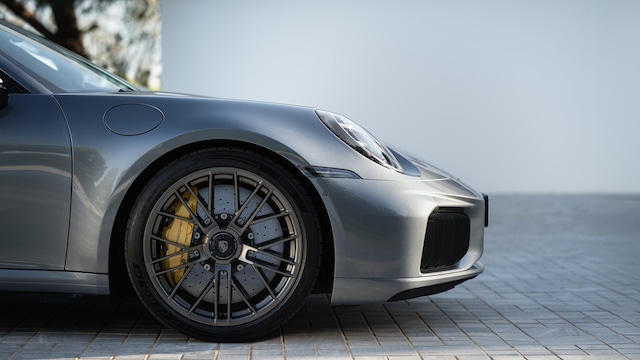
 6 / 10
6 / 10Aerodynamic Focus: Aerodynamics play a large role in the design. Active air flaps and adjustable spoilers are fitted to improve cooling and reduce drag. These also enhance stability at high speeds. The bodywork is wider than the standard 911, and the Turbo S features distinctive titanium exhaust tailpipes. The look is further defined by exclusive “Turbonite” trim elements unique to this model.
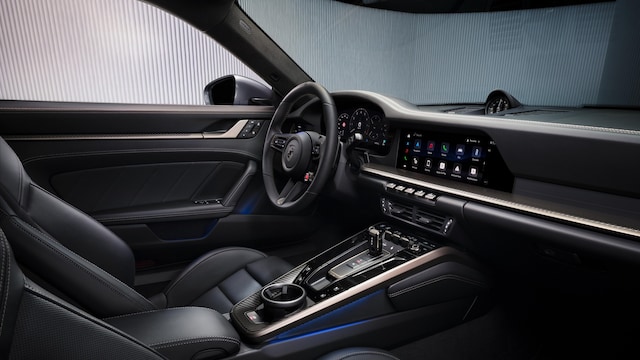
 7 / 10
7 / 10Cabin Features: Inside, the new Turbo S comes with 18-way adjustable seats and revised trim. The “Turbonite” finish, which has a gunmetal and purple tint, is exclusive to this model. As standard, the car removes the rear seats to save weight, but Porsche offers them back as a no-cost option. The cabin also accommodates features such as a Sport Chrono stopwatch on the dashboard.

 8 / 10
8 / 10Market Context: The Turbo S arrives at a difficult moment for Porsche AG. Since its Frankfurt listing three years ago, its share price has fallen by nearly half. Challenges include supply chain issues, weak demand for electric models, and slowing sales in China. US import tariffs have further hurt prospects. Porsche’s stock has dropped so much that it will leave Germany’s DAX index.
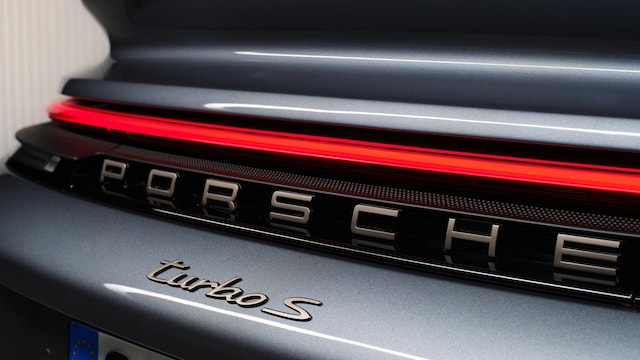
 9 / 10
9 / 10Corporate Response: In response, Porsche has cut costs, including jobs, and cancelled its own battery production plans. The company is shifting toward more combustion-engine and hybrid models. CEO Oliver Blume, who also leads Volkswagen, said the goal is to return to the DAX soon. Pressure has increased for him to focus on one role, while the Porsche-Piëch family considers successors for the Porsche post.

 10 / 10
10 / 10Price Details: The 2026 911 Turbo S will start at €271,000 ($318,000) in Europe, with deliveries scheduled later this year. Converted estimates suggest pricing near ₹2 crore in India. With Bugatti-level acceleration, improved Nürburgring pace, and the practicality of a 911, Porsche positions the new Turbo S as both versatile and extreme. Attention now turns to the upcoming non-S Turbo and future GT2.
Discover more from News Hub
Subscribe to get the latest posts sent to your email.






